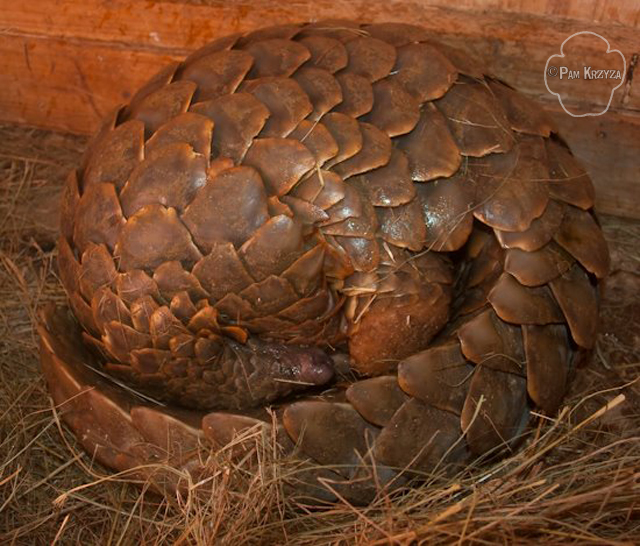Filtered by: Scitech
SciTech
Ano nga ba ang Pangolin? Here's the science behind this unusual creature
By TJ DIMACALI, GMA News

An unusual animal captured in Pasay City the other day caused a minor panic among residents because it was the first time any of them had ever seen a pangolin:
Their confusion was understandable.
Endemic to some parts of Africa and Asia, including Palawan, the Pangolin is a very curious animal indeed.
Just keep rollin'
Also known as a scaly anteater, the Pangolin's name comes from the Malaysian word "pengguling" which loosely means "something that rolls", according to Pangolins.org.
And roll they do! One of the Panggolin's distinctive features is its ability to roll up into a scaly ball, hence its name:

Those scales may look fearsome, but they're actually made of the same material as fingernails and hair.
These gentle animals eat only small insects such as ants and termites, so they evolved tiny, toothless mouths and very long, sticky tongues—perfect for reaching into ant nests or termite mounds.
'Most trafficked animal'
However, despite—or perhaps because of—their seeming strangeness, pangolins are in danger of extinction from poaching and trafficking.
"The pangolin could go extinct before most people realize it exists... Some experts say (it) is likely the most trafficked mammal in the world," according to CNN. Close to a quarter of a million pangolins were trafficked over a two-year period alone.
"(They) are trafficked by the thousands for their scales, which are boiled off their bodies for use in traditional medicine; for their meat, which is a high-end delicacy here and in China; and for their blood, which is seen as a healing tonic."
And, as in the case of the Pangolin caught in Pasay, they are also prized as exotic pets.
Endangered in the Philippines
The Philippines' own endemic pangolin species, Manis culionensis, is listed as "endangered" by the International Union for Conservation of Nature (IUCN), which estimates that its numbers have declined by over half in recent decades.
It is known to locals as "malintong". — GMA News
More Videos
Most Popular




